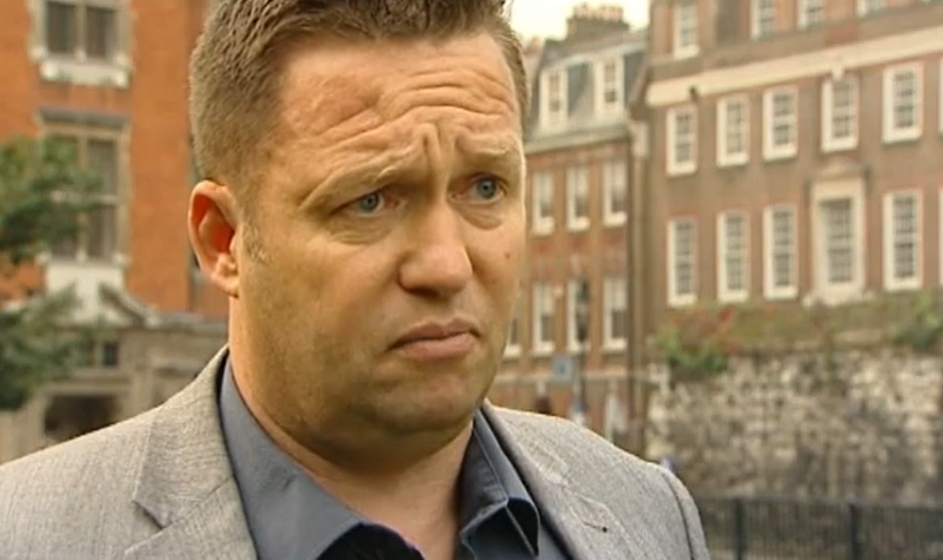SEAN STARBUCK was one of the Fire Brigades Union’s most senior and respected officials. After serving for many years as a firefighter and local FBU official in the north of England, he secured the votes of thousands of members when he stood successfully for the position of national officer.
Starbuck was one of a small number of national officers employed at the union’s head office in south-west London. In line with the union’s rule book, these officers work under the direction of the general secretary, Matt Wrack, and, between them, hold considerable responsibility in a range of areas covering the union’s industrial, legal and political work.
Starbuck himself held the remit for – among other things – pensions, health and safety, and workforce development. He played an instrumental role in the union’s successful legal challenge in 2018 to the government’s discriminatory pension scheme changes and was a driving force in the widely-acclaimed campaign to raise awareness over the impact of fire contaminants on the health of firefighters.
But in 2020, he made what appears to have been a fatal and career-ending decision: he challenged Matt Wrack in an election for the leadership of the union.
In his election address, Starbuck told members that it was time for change, arguing that the current general secretary had presided over an era of real-terms pay cuts, thousands of job losses and unsafe crewing levels. In the end, however, he was not successful in his bid to unseat Wrack.
Shortly after the conclusion of that election, Starbuck placed himself on long-term sick leave amid widespread rumours that he had been subjected to mistreatment by senior colleagues at the union’s head office. One former member of the union’s ruling executive council told this blog: “There had been talk for a long time of tensions between Sean and other senior officials at head office, but Sean’s job became impossible after he challenged the general secretary for his position. He was ‘sent to Coventry’, as the saying goes. The atmosphere had become poisonous, and Sean was left in no doubt that he had crossed a line by standing against Wrack. He felt that the treatment he was subjected to gave him strong grounds for a legal claim against the union.”
In June 2021, the general secretary announced in a circular that Starbuck had left the union. Just like that, a prominent and long-serving national officer – one who had been democratically elected to his position by thousands of members – was gone. No official explanation was offered for Starbuck’s sudden departure, and not even the executive council was given the full details.
Campaign for a Democratic FBU can now reveal that Starbuck was paid £50,000 of members’ money in return for signing an agreement to end his employment, keep quiet about the circumstances of his departure, and not bring any legal claims against the union. This transaction was comprised of a settlement payment of £40,500 and the awarding to him of a motor car to the value of £9,500.
Details of the package were disclosed last week to a member of our steering committee who had exercised his right under trade union legislation to see the accounting records containing details of payments made to Starbuck as part of the settlement agreement between him and the union.
We stress that we level no criticism whatsoever at Starbuck. He has done nothing improper or unethical. Starbuck served the FBU with dedication and loyalty for more than 20 years, and if the reports of his mistreatment are true, he was perfectly entitled to seek a settlement agreement. We would also point out that there is no evidence that Starbuck himself was the driver behind the decision to insert a confidentiality clause into the agreement. His reputation therefore remains intact.
Our criticisms are instead reserved for the union’s leadership. Starbuck appears to have been just one of a long line of victims of a toxic culture at the union’s head office – a culture which, as Private Eye magazine reported, has resulted in a string of employees leaving the organisation over recent years with pay-offs and non-disclosure agreements. In many cases, the full circumstances of these departures were withheld even from the executive council.
Despite the fact that the settlement agreement with Starbuck involved a large sum of members’ money, the union’s leadership wanted to keep it under wraps. That’s why they insisted that Starbuck’s departure be covered by a non-disclosure agreement. It is also why they threatened the member who made the request to view the accounting records with disciplinary proceedings if he shared details of the settlement agreement (a threat that will be the focus of our next blog).
The leadership believed that the union’s members had no right to know how their money was being spent. They believed that the circumstances surrounding the sudden exit of a senior elected official should remain concealed. They believed that even the executive council had no right to know the full details. They believed that they could order a substantial and unorthodox payment of union funds to an outgoing employee – in this case, one who had complained of mistreatment – without anyone ever finding out about it. They believed that just because they had put their own personal signatures to a non-disclosure agreement that every single member of the union was also bound by that agreement.
In a supposedly democratic, membership-led and membership-funded organisation, these attempts at secrecy, and the threats towards anyone who exposes them, are utterly deplorable. They are the tactics of a regime which has been in place for too long and has become so arrogant that it thinks itself above the normal rules of scrutiny and oversight.
The union’s leaders must now come out and explain precisely why they awarded a £50,000 package to an outgoing national officer. As far as we can see, there are just two possible explanations. Either they recognised that they had indeed mistreated Starbuck and therefore made the payment to him in an attempt to forestall legal action. In which case their actions would amount to a breach of the union’s rule requiring members and officials to treat others with dignity and respect. Or, alternatively, they don’t believe that they were guilty of mistreating Starbuck, or that he could have pursued a successful legal claim, but they decided to make the payment anyway. In which case their actions would amount to an illegitimate and unnecessary outlay and thereby a misapplication of the union’s funds. Either way, we conclude that the union’s rule book has been breached.
The broader point is that there can be no room for “confidentiality” when it comes to questions of how FBU members’ money is spent by their elected representatives, and this blog makes no apologies for shining a light on significant and irregular financial transactions that the union’s leadership is desperate to hide. The non-disclosure agreement signed between a handful of senior FBU officials and Sean Starbuck is now dead in the water. And for good reason. In the end, accountability and transparency matter. These things are, in fact, the very foundation stones of democratic trade unionism.
Every FBU member understands this, even if the union’s leaders do not.

